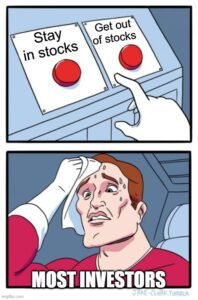Volatility is a subject that most people misunderstand especially when it comes to the markets.
The dictionary defines volatility (in regards to prices, values, etc.) as: tending to fluctuate sharply and regularly: volatile market conditions.
Ironically (or NOT) the vast majority of investors think it only applies to falling markets – like we’ve recently experienced.
But what happens when the markets radically move upward?
Example: On Monday, the DOW touched 18,099 but by the close on Thursday it reached 22,359.
That’s 4,260 points up in three days or 23.5%.
Many individual stocks did better:
Example: Lowe’s (LOW) went from 64.38 on Monday to 88.11 on Thursday or 36.22%.
Why isn’t that considered volatile?
Ironically (or NOT) people tend to think that when their stocks go up it’s because of their genius selection and not because of volatility. However, when their stocks go down, they blame the crazy volatility on market conditions
If that’s ever happened to you it’s because you bought into what the presstitutes – and talking heads on TV – told you what to believe.
You must remember:
- They’re NOT your friend.
- They don’t care about You.
- They read from scripts/teleprompters.
- They report what their Wall Street overlords tell them to report.
- They’re highly overpaid actors who’ve never been in the trading pits.
The list is much longer but I’ll cut it off here (We have a report on our site “Volatility” that goes into more detail HERE).
The point here is, Volatility will smack you around in both falling AND rising markets because humans get caught up in their emotions.
Once again: THE MARKETS DON’T CARE ABOUT YOUR FEELINGS OR YOUR OPINION.”
Learn how to side-step your feelings and make a fortune – when everyone around you is losing – in our April edition of “…In Plain English.”
You’ll thank us later.









